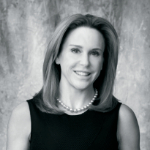In This Section

Robyn Barrett
Managing Member, FSW Funding
Biography:
Robyn Barrett is the managing member of FSW Funding, an independently owned and operated factoring firm founded in 2001 and headquartered in Phoenix, Arizona. FSW Funding helps small to mid-sized companies by giving them access to the capital needed to grow.
Robyn has a bachelor’s degree from Arizona State University, an MBA from Grand Canyon University and a CPA license. She has worked in accounting and finance-related positions for various Fortune 500 companies such as The Dial Corporation and FINOVA Capital Corporation. It was at FINOVA that Robyn was first exposed to the struggles many small and mid-sized companies experience when trying to secure funding. Robyn is an active member of numerous industry organizations including: American Institute of Certified Public Accountants (AICPA); Arizona Society of Certified Public Accountants (ASCPA); Turnaround Management Association (TMA); Risk Management Association (RMA); International Factoring Association; Secured Finance Network, and the Association for Corporate Growth.
Robyn is also involved in educating up-and-coming entrepreneurs and can frequently be found as a speaker at organization and association events, including the Small Business Association and ASU’s entrepreneurship programs.
What advice would you offer to women just starting out in the industry?
Women tend to underestimate their ability to perform and lose out on some really great career opportunities. My advice would be to take advantage of opportunities given to you even if you don’t feel ready. Honestly, if an opportunity doesn’t challenge or scare you, then why do it?
Don’t feel qualified for a new opportunity? Most work experience is learned on the job, not the classroom. Women tend to over prepare, overthink and over- analyze every opportunity and then it’s gone. Have the confidence to take more risks early on even if it means you might trip along the way, because ultimately you will learn from those experiences. Be bold, ask for the big assignment or make that cross-country move if it means more opportunity for growth. Although I didn’t start taking risks until later in my career, every risk I did take ultimately led to personal and professional development and the realization that ultimately it all works out.
What do you know now that you wish you knew in the beginning of your career?
Don’t let setbacks define you. Even a river takes a non-circuitous route to get to its destination. Similarly, it is rare that a career path offers a perfectly straight path from A to B to C. Your career trajectory may be filled with twists, turns, falls and moments when you wonder if you are even on the right track. But for many who are on the other side of success, those moments when things might have seemed most off-track are often seen as the very moments that turned out to be pivotal in leading to success. I am a firm believer in when one door closes, another opens.
What kind of role has mentoring and/ or sponsorship played in your career?
Establishing a group of mentors to whom you can turn to bounce an idea around or check in about a possible career move is invaluable. As you move through your career, especially in the early period, pay attention to who helped you get there. In big ways or small, express gratitude to those that have helped you and, even in a busy life, try to maintain bonds. Remember even a mentor relationship is two-way and you should bring something to it. Even something as simple as a quick email from time to time can help maintain the connection. Just as importantly, look behind or beneath you to see who is coming up and make time for those who are where you once were when someone may have helped you, or maybe when you wished someone would have.
What do you think the industry could do to attract and retain the best and the brightest today?
Start by recruiting and getting involved on the college campus across the country. This could include SFNET members volunteering to speak at college classes or clubs. Most colleges have entrepreneur and venture capital classes and clubs which would be thrilled to hear about the experiences of a finance executive. These students lack real world experience and what they read in a textbook about finance is boring and difficult to relate to.
Professional Development Courses
- Live online classes for ABL and Factoring professionals
- On Demand classes in Appraisals, Factoring, Legal, Workout & Bankruptcy
